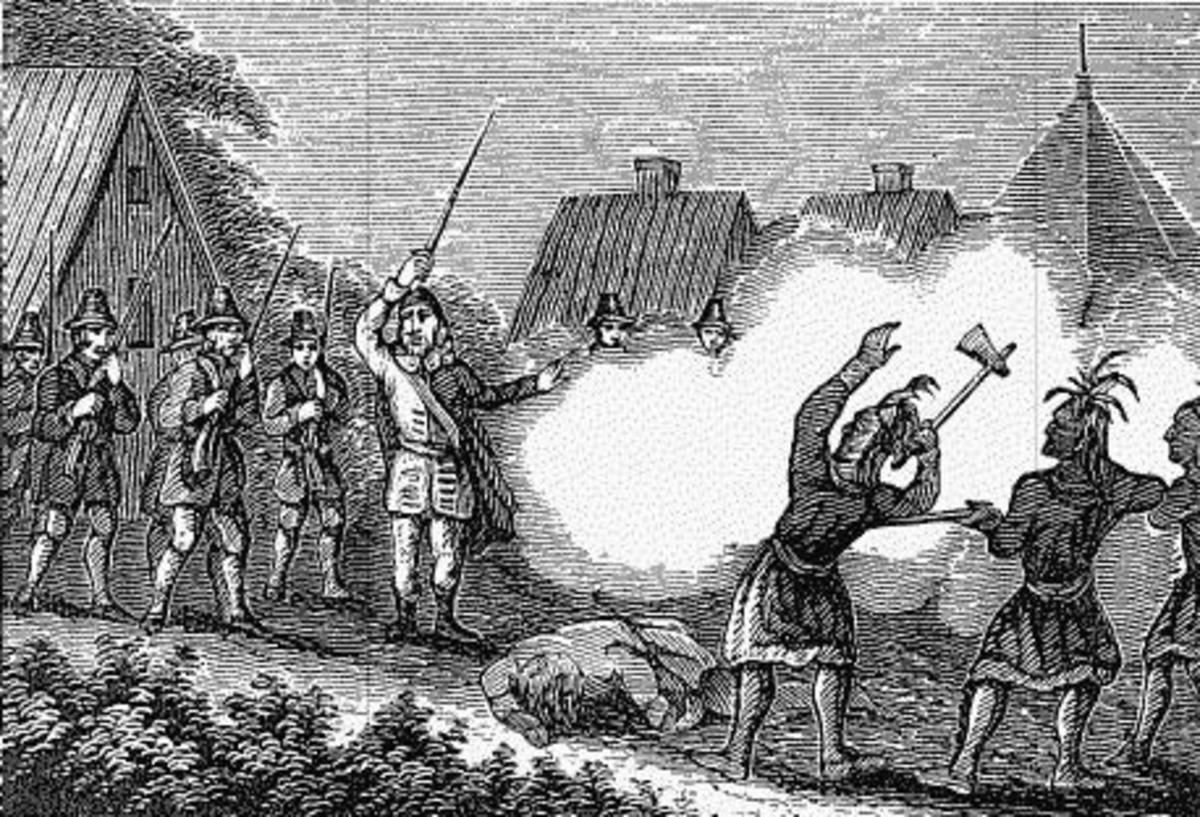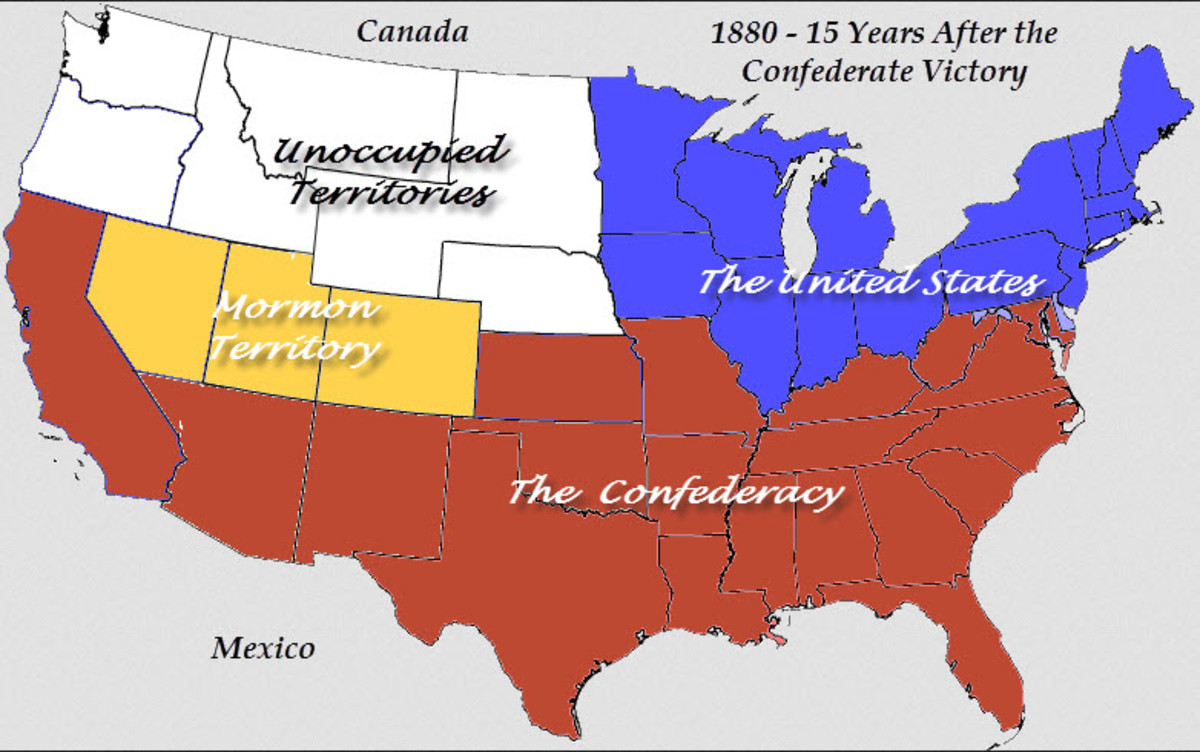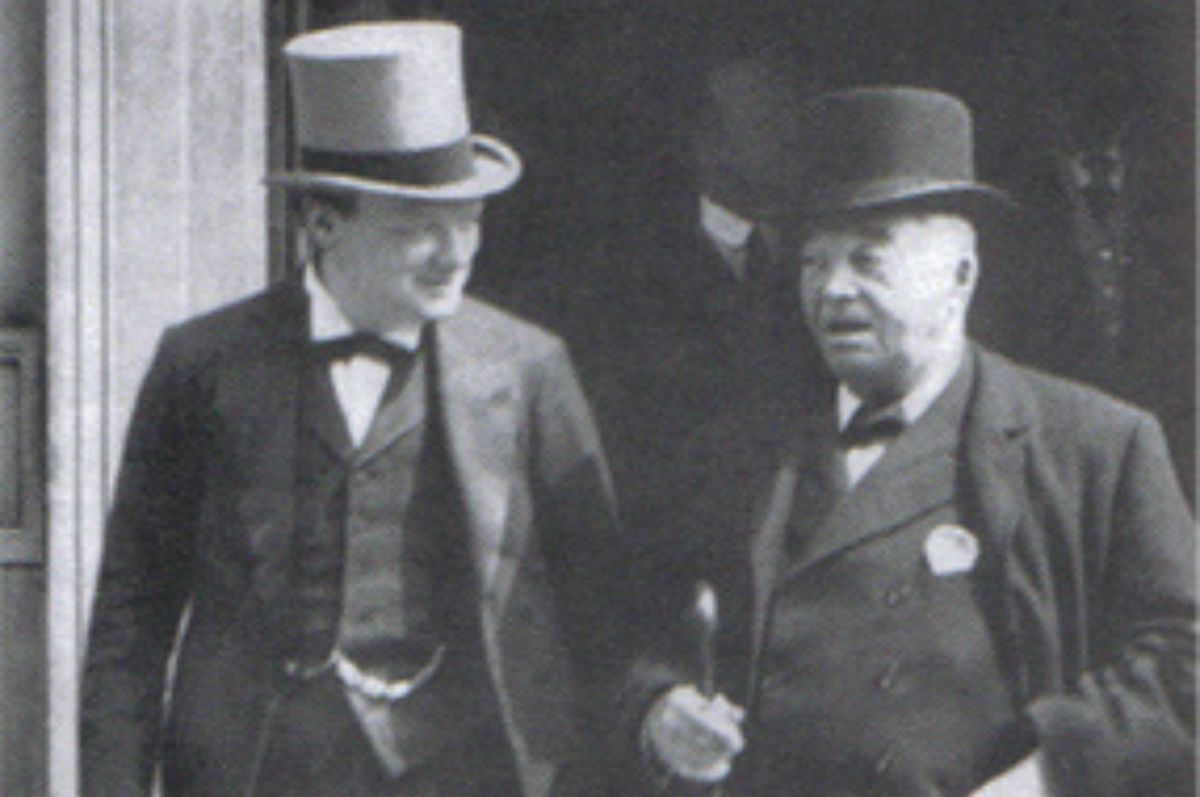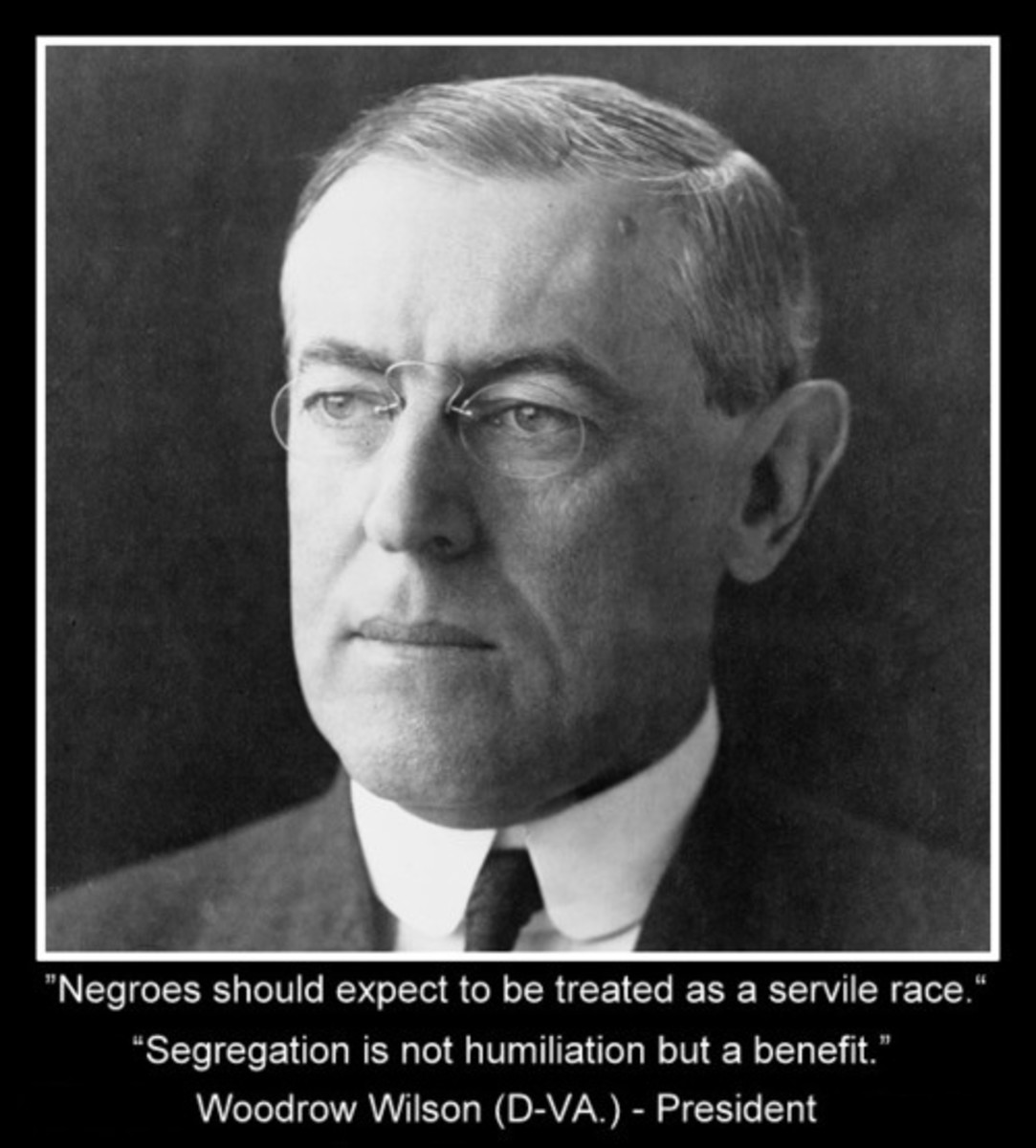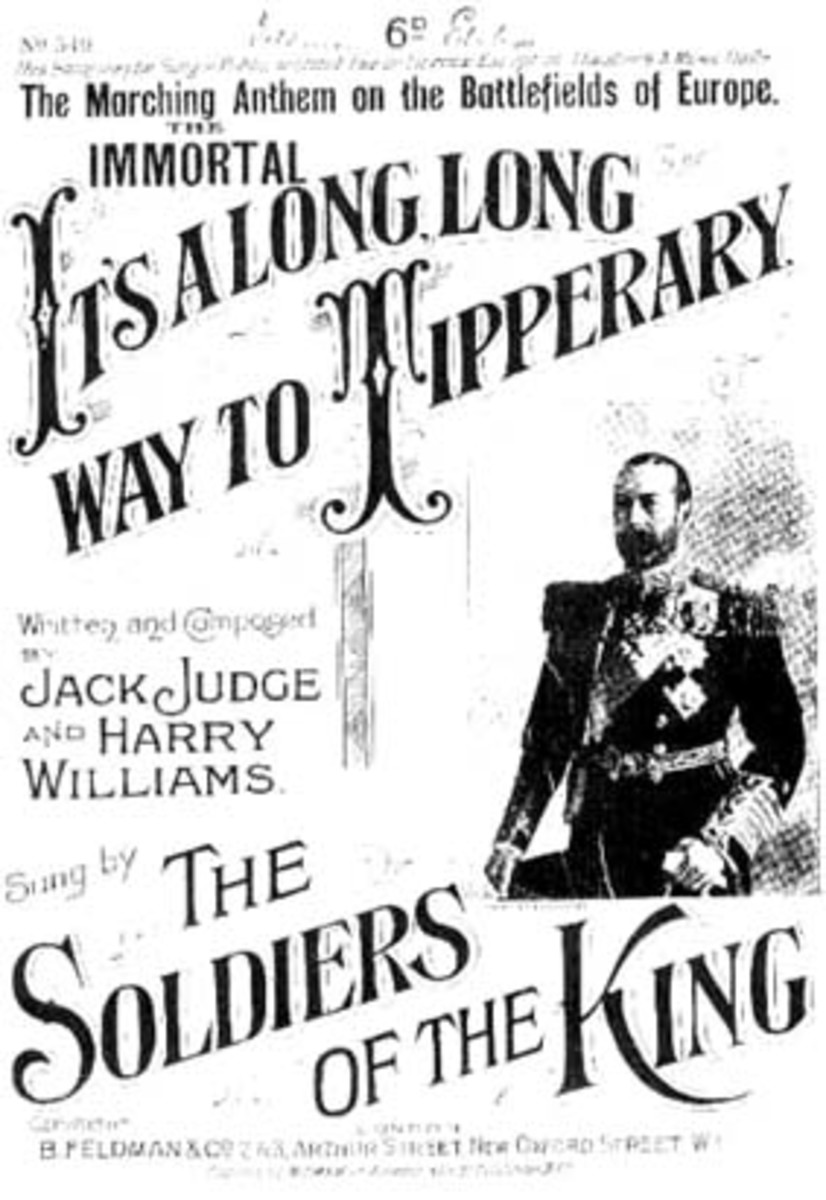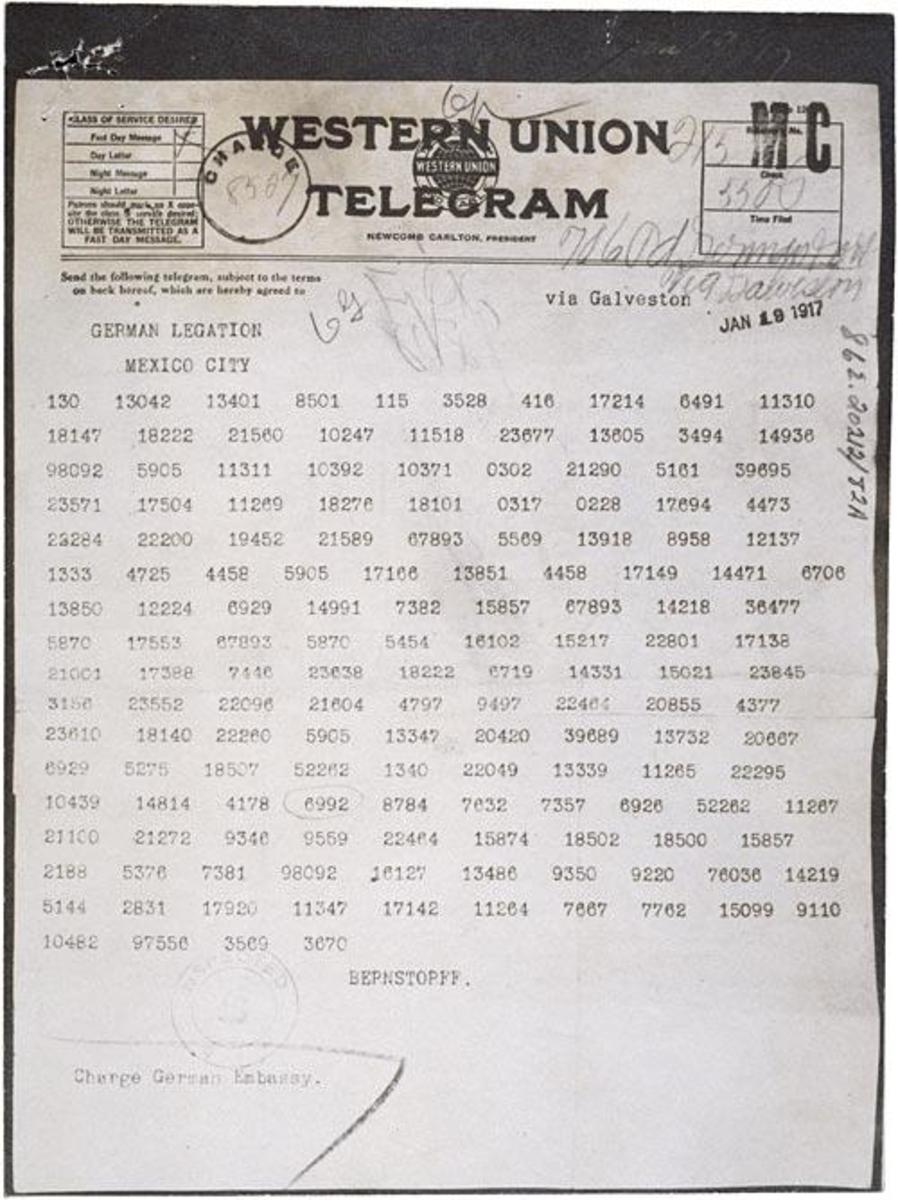- HubPages»
- Education and Science»
- History & Archaeology»
- History of the Modern Era»
- Twentieth Century History
Essay on World War I

It would be easy to say that David Esposito's book The Legacy of Woodrow Wilson: American War Aims in World War I was groundbreaking for its time, but this would be implying that it is not still groundbreaking today. Few people focus what little attention they have apportioned to history on the events of World War I, favoring instead to let it be overshadowed by World War II. Therefore many people take the reasons cited for entering the First World War as the truth without further inquiry. What's worse, is that many historians choose to simplify this war and America's involvement in it. People do not pay close attention to the details implied by the war however. Up until this point America was an isolationist nation, uninterested with European affairs outside the scope of America's trade with the continent. Monroe doctrine made it quite clear that the United States wanted to be unaffected by European imperial states, and why should the reverse not be true. No one reason, be it economic or military is sufficient enough to explain why the President of the United States chose to go against the past hundred years of traditional isolationism his country had employed. After all, the world was not truly at war. Germany was not powerful enough to feasibly take control of the planet. Furthermore, the sides were more ambiguous than the Second World War with hidden interests from all belligerents. Esposito offers a good and thorough explanation for the presidents actions.
Esposito states that the three main interests of any nation are trade, security, and prestige (Esposito 2). He explains that there are proponents for each one of these as the main cause for American involvement in the Great War, but according to Esposito, these are not sufficient. Wilson's mind is much more complex than that, and he instead had long term goals in mind to secure American stability in the changing global climate. (3) Esposito lays out two extreme views of Wilson: that he was a religious idealist fighting for American prestige, and that he was a greedy economist and his moral idealism was a front to hide his true motives (3). Esposito's stance is that Woodrow Wilson was in fact an idealist (134), but that every possible benefit for his country backed his decisions, and that his main goal was to secure American leverage during post war peace talks, protect American ideals by giving them a place in global politics, and ultimately to avoid future wars through the establishment of the League of Nations which would mediate conflicts before they got started. The Great War was literally to be the “war to end all wars” (138). David Esposito's book is an origin story for Wilsonian ideology.
The greatest strength of Esposito's argument is that it is difficult to contest due to the type of argument it is: a new interpretation of previously established facts. His supporting facts are the same as those who would oppose him; he however views them in a new light. If his book were a martial art it would be aikido, the art of not facing an opponents force head on. Much like an aikido practitioner can use an opponents momentum to throw them, Esposito's very position is one that can turn any argument against him into one for him. If one were to argue that economic reasons were the main concern in WWI, Esposito could simply deflect this argument and counter that the economy was certainly an important factor and that is why America needed to establish dominance in post war peace talks (4). If one were to use the simplistic and regrettably common argument that America had to get involved for the sake of world safety and to save the Allies, he could counter that global security was of course of utmost importance to Wilson and that is why he was compelled to move America into a position to promote world peace through diplomacy. Trade, security, and prestige: Esposito acknowledges all of these factors but no one of them as the sole cause to America's entering the First World War.
Esposito's second greatest strength is simply how well thought out his theory is. In a modern era where we see the complicated intricacies of politics, Esposito does not kid himself that Wilson was a simpler man from a simpler time. Though certainly Wilsonian ideals are an commonly understood concept among history scholars, The Legacy of Woodrow Wilson gives a reasonable account of how these ideals came to be; that they were not merely derived from circumstance but were well thought out by Wilson, a man educated in history who had almost prophetic foresight (140). All of the objective facts about World War I remain the same in Esposito's theory but are viewed in a different light. Everything simply fits together well without requiring a rewriting of the events as they are known to have happened.
Finally, Esposito does not seem to be a die hard Wilson fan. Though he certainly must have admiration for the man after studying him so thoroughly, there is no reason to believe that Wilson is simply his pet historical figure whom Esposito would like to paint in a good light. The book points out many of Wilson's flaws, not the least of which is that his plan ultimately failed (139). It is also mentioned that while Wilson criticised both belligerents in the war for using means that were not justified by any of their ends, Wilson himself sent millions to their deaths for his own means. It is true that the book mentions more good things about Wilson than bad, but if anything that would seem to be because he was more a good man than bad, and not because the author has some bias on the matter.
Esposito, as unbiased as he may be, does seem to overstep his limits as a historian by guessing at Wilson's thought processes and feelings on certain matters. An example of this occurs in the final chapter, “Venomous Victories,” when the author asserts that in Wilson's mind, democracies are inherently peaceful and autocracies inherently aggressive (136). These are very definite terms, and maybe the author's mistake of referring to things entirely in Wilson's mind could be overlooked if he had not used such definite terms (e.g. if he had said that Wilson saw democracies as tending to be more peaceful than autocracies). But as it is, this argument needs some support, but Esposito offers no citation. The author also oversteps his bounds on pages 135 and 138 where he indicates that Woodrow Wilson believed history was pointing toward a new world order and that an application of American morals could uproot autocracy from the world and that Wilson literally believed World War I would be the last war respectively. Again, these are very definite terms to be using to describe a man long dead who cannot clarify for us what he was thinking without some sort of citation. Of course, depending on the type of source, citation still might not have been enough for these overstatements. Without documents written by Wilson himself or someone close to him, it is not appropriate for a historian to tackle matters that are perhaps psychological, but more accurately, are complete conjecture. Also, this is a bit of a simplification for a man to make who earlier criticized others for not understanding the complexity of Wilson's mind.
On page 4 and again on page 28, Esposito seems to downplay the part Germany's unrestricted submarine warfare played in getting America involved in the war. Esposito does not make it a point to explain exactly what is meant by “unrestricted” warfare, because is the readers were to realize that this means Germans were attacking and sinking American merchant ships, it may seem like reason enough for Wilson to have gone to war and would detract from Esposito's argument.
On page 135, Esposito glosses over another major factor in going to war: the Zimmerman Telegram. Much like the unrestricted submarine warfare, if readers thought too much about the fact that Germany suggested an alliance with Mexico to engage in open war with the United States, it would not lend credit to Esposito's theory that American involvement in the war was a well calculated diplomatic maneuver.
In terms of literary context, The Legacy of Woodrow Wilson is not technically new as all of the ideas it purports had been used before, but individually. Esposito has compiled them into one coherent worldview from which people can operate to understand America’s actions in the war and actually use as a jumping off point to understand America's actions in wars since then. The book describes the origins of Wilsonian ideals and in that way it was novel for its time (it was published in 1996) and is unique.
Esposito's sources are numerous and well documented, providing a works cited section after every chapter. These are not miniature bibliographies that provide names of books that would be good for further reading but are not necessarily used in this book. These are actually works cited in text. In addition to numerous books, the author uses several dissertations of other historians and seven published documents. It is clear that Esposito did his research. His points are backed by a wide variety of academic publications.
The Legacy of Woodrow Wilson: American War Aims in World War I puts forth an interesting theory, but more importantly, David Esposito makes his case strongly, backing it with numerous credible sources and using well known and documented historical facts but viewed in a different light as his supporting arguments. That the Allies may have been viewed by Woodrow Wilson as hardly better than the Central Powers and that America joined the war to attempt to secure diplomatic control in global affairs is not only plausible but sets the stage for wars to come. Everything from the Cold War to America's modern policy of “preventative wars” and nation liberating can be better explained in the context of Wilsonian idealism as Esposito has explained it, and that is that the United States, fearful of becoming an isolated garrison state made the choice to secure a powerful position in global politics from which, ideally, it could negotiate world peace.
Work Cited
Esposito, David M.. The Legacy of Woodrow Wilson: American War Aims in World War I. Westport, CT: Praeger Publishers, 1996. Print.


